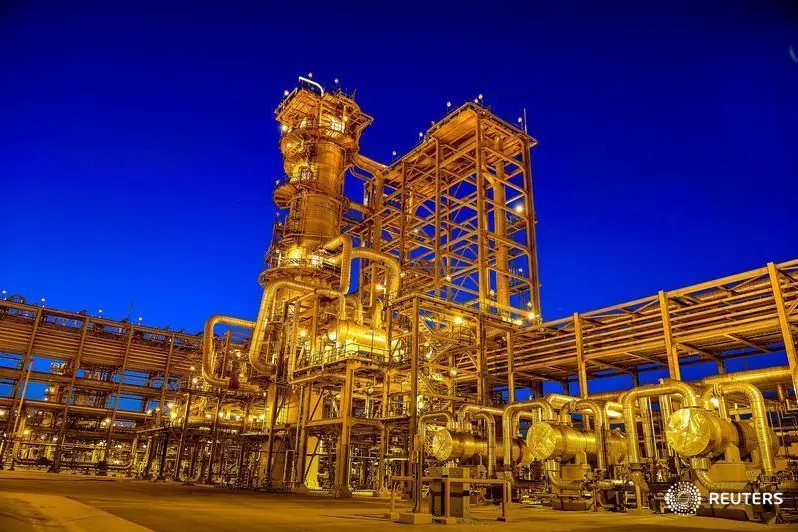PHOTO
There is absolutely no doubt that the next Opec ministerial meeting this week will pit Saudi Arabia and its Gulf allies against Iraq, Iran and Venezuela, three founder members of the oil exporters organisation. Saudi Arabia has increased its production 140,000 barrels a day above its 10.058 MBD output ceiling in the pact the kingdom had brokered between the Opec, Russia and non-Opec oil producers. There has been a significant shift in Saudi oil policy since early May and the kingdom wants to increase output to bring down oil prices, probably in response to pressure from the Trump White House.
Saudi Arabia has always seen that oil price spirals that could cause global recession and decimate demand for its sole major export commodity. Russia has also increased its oil production in May to almost 11 million barrels a day, in response to pressure from the cash strapped oligarchs who run Lukoil, Rosneft and Gazprom Neft. If history is any guide, the kingdom's closest Opec allies, Kuwait and the UAE, will also increase output this summer.
I track the impact of the Saudi oil policy shift in real time on my Bloomberg screen. Net longs in the West Texas Intermediate crude contract have plunged by a third since their January peak. A similar pattern exists in the North Sea Brent futures contracts. Speculative money no longer expects oil prices to rise. If Russia, Saudi Arabia, Kuwait and the UAE supply one million extra barrels a day of crude oil to a market that faces no real shortages, the optimal strategy is to remain short oil with an $60 Brent crude target.
It is also rational for Iraq, Iran and Venezuela to protest Saudi Arabia's determination to engineer lower oil prices. Iraq exports 3.62 MBD of Basra Light and cannot easily expand production while Baghdad has not resolved all its political issues with the Kurdish regional enclave in Erbil. Iran and Venezuela cannot expand output due to US sanctions and chronic financial crises. The geopolitical fissures in the Opec will resurface in Vienna.
The 2014-16 oil crash was brutal in its sheer scale. Brent crude was $115 in June 2014, the month terrorists seized the Iraqi city of Mosul, and plunged to $28 by February 2016, when Saudi Arabia finally signalled its intention to resume playing its role as the Opec's "swing producer", the de facto central bank of oil. The kingdom then led a 1.8 MBD output cut with Russia and two dozen other oil producing countries worldwide. The harsh reality of the Opec is that climate change, electric cars and new gasoline engine technologies lead to a peak in consumption at the same time as the Permian Basin shale oil drillers turn to global export markets. This means the primary trend for crude oil is to fall since Opec supplies only a mere third of global demand. Unlike in the 1970s, the Opec is a price taker, not a price maker.
Saudi Arabia and Iraq, with the world's biggest long-life reserves and lowest lifting cost, will be in a competitive race to produce and export as many barrels as they possibly can before technology makes fossil fuel obsolete. Oil gluts, not oil shortages, have seen the swords of Damocles for oil producers ever since John D. Rockefeller created the Standard Oil trust in the late-1890s. International politics and the economics of drilling suggest a stable price is one that enables Saudi Arabia to finance its development plan and maintain its goodwill in Washington but also enables North America's 4,000-odd shale oil wildcatters and Big Oil to earn an economic profit. Economists estimate this stable, crude oil price at current prices is $50-$56 Brent.
This is the reason the smart money bets Brent will drop from its current $75 to $60 or lower by year end. This is the reason I ignore ostensible "bargains" in Wall Street oil and gas stocks.
With its vast reserves, low extraction costs and high spare capacity, Saudi Arabia will continue to remain the dominant power broker in the Opec and the international energy markets. However, it is no longer in Saudi Arabia's national interest to restrain output and act as a swing producer if shale, climate change and new electric car technologies is going to erode long-term demand for crude oil. In fact, the mathematics of Von Neumann's game theory suggests Saud Arabia, Iraq and Russia will all seek to produce and export as much as they can, to monetise reserves before demand for black gold shrinks over the next decade. As each nation in the Opec (and Ropec!) seeks to maximise revenue, the only credible scenario is a Darwinian battle for market share - a price war.
The writer is a global equities strategist and fund manager. He can be contacted at mateinkhalid09@gmail.com.
Copyright © 2018 Khaleej Times. All Rights Reserved. Provided by SyndiGate Media Inc. (Syndigate.info).





















